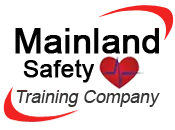Empower your workplace with proper respirator fit testing standards through our Train the Fit Tester (TFT) certification. This focused 4-hour training ensures you understand legislation, CSA standards, and best practices to conduct accurate, compliant respirator fit tests.
Course Overview
Gain practical skills and regulatory insight, including:
- Responsibilities and roles within a respiratory protection program
- Core elements of respiratory programs per CSA Z94.4-02
- Identifying respiratory hazards and recognizing when respirators are required
- Selecting respirators and distinguishing filters from cartridges
- Conducting fit tests on diverse respirator types
- Performing seal checks before each use
- Proper care, maintenance, and storage protocols
- Setting up documentation systems to ensure compliance
Prerequisites
No prior training necessary. Participants should have a basic understanding of respiratory hazards and program requirements. All key training materials and support are provided.
Certification & Validity
Applicants must demonstrate proper fit test procedures and successfully pass a final exam. Once completed, you’ll receive certification valid for three years.
Duration & Venue
- Length: 4 intensive hours of hands-on instruction
- Environment: Conveniently located near BCIT, our well-equipped facility ensures comfort and effective learning.
What is Qualitative Fit Testing?
Qualitative Fit Testing (QLFT) checks if your respirator seals properly. It uses harmless test
agents (sweet Saccharin or bitter Bitrex) inside a hood.
- If you taste the solution, the mask is leaking → test fails.
- If you do not taste it, the mask fits properly → test passes.
Who Needs This Test?
- Workers who use N95 masks or half-face respirators.
- Required under CSA and WorkSafeBC regulations.
Why Mainland Safety Uses the 3M Fit Test Kit
- Trusted global standard (OSHA, CSA, HSE, ISO, AS/NZS)
- Affordable and accessible (no $30k machines required)
- Accurate for N95 and half-face respirators
- Portable for job sites and remote areas
Step-by-Step Testing Process
1. Mask Selection – Choose the most comfortable mask size/model.
2. Donning & Seal Check – Learn proper wear and perform a quick seal check.
3. Sensitivity Check – Ensure you can detect the test solution.
4. Fit Test Exercises (done inside 3M hood with solution sprayed):
- Normal breathing
- Deep breathing
- Turning head side-to-side
- Looking up & down
- Talking (reading passage aloud)
- Bending/jogging in place
- Normal breathing again
- Pass no taste detected.
- Fail taste detected try another mask model/size.
Safety Reminders Before Your Test
- No eating, drinking (except water), smoking, or chewing gum 15 minutes before.
- No facial hair where the mask seals.
- Ensure you’re healthy and comfortable for the test.
- Repeat testing if your mask type or face changes (e.g., surgery, major weight change).
Investment
- Cost: $199 + GST
Course Location
3236 Beta Avenue, Burnaby, British Columbia, V5G 4K4, Canada
Why This Matters for Safety Teams
Proper fit testing is critical—an ill-fitting respirator can’t protect wearers effectively. By becoming a certified fit tester, you ensure workplace safety, meet regulatory compliance, and reduce liability associated with improper use of respirators.
Course Dates
Venue:
| Event | Date | |
|---|---|---|
| Train the Fit Tester (TFT) Regular Registration Location: 3236 Beta Avenue, Burnaby, British Columbia, V5G 4K4, Canada -November 21, 2025 8:00 am |
|
Register |
| Train the Fit Tester (TFT) Regular Registration Location: 3236 Beta Avenue, Burnaby, British Columbia, V5G 4K4, Canada -December 19, 2025 8:00 am |
|
Register |
Faq
1. How long does it take?
About 20–30 minutes per person.
2. How often is it required?
Every year (CSA), or sooner if your mask/face changes.
3. Is it accepted by WorkSafeBC/CSA/OSHA?
Yes – the 3M Qualitative Fit Test is recognized worldwide for N95s and half-face respirators.
4. Can I eat before the test?
No – avoid eating, gum, or smoking 15 minutes before.
5. What happens if I fail?
You’ll try a different mask until one fits correctly.
6. Does it hurt?
No – you may just taste something sweet or bitter.
7. Can I have a beard?
No – facial hair on the seal area prevents a proper fit.
24. What language is this course taught in?
This course is taught exclusively in English.
23. What is the equivalent certification to Basic First Aid?
Equivalent certifications for BFA include St. John Ambulance, MedAire, Lifesaving Society, and Canadian Red Cross (Emergency First Aid). See here for more details.
25. Are there prerequisites to this class?
There are no prerequisites to BFA.
